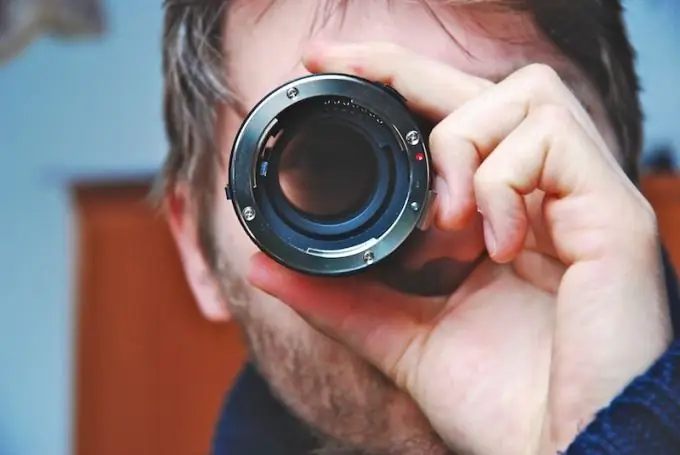- Author Antonio Harrison [email protected].
- Public 2023-12-16 07:44.
- Last modified 2025-01-22 21:44.
A voyeur is a person who enjoys observing people's sexual or intimate activities. The term "voyeurism" covers a fairly wide range of conditions. Moreover, only some of them are considered perverted.

The origins of voyeurism
The unconscious level of voyeurism is similar to exhibitionism. Both deviations most often arise on the basis of childhood experiences on which voyeurs are painfully focused. Such experiences are unexpected (or shameful) visual images. For example, scenes of a sexual nature spied on in childhood or even just a glimpse of the genitals of adults. Such experiences cause subconscious fear in the voyeur, which he tries to deny by repeating the traumatic experience.
Such voyeurism is based on a desire to replace obsessive pictures from childhood with more acceptable ones. In this way, the voyeur replaces childhood fear and convinces himself that there is no danger.
During adolescence, voyeurism is a form of healthy sexual curiosity.
Quite often, voyeurism affects people for whom the visual is the main channel of information perception. That is why people for whom the visual component is a significant part of their work or life are more likely to be voyeuristic.
Experiences that are similar in nature to voyeurism are formed in infancy, when the child learns to recognize his mother by the face. If a little later (for example, during weaning) he has a fear of loss or loss, this may give an impetus to the formation of the need to observe the lives of other people. If in early childhood (before the age of two) a person has a painful and traumatic breakup with their mother, this can lead to a host of disorders. Such experience can cause problems of gender identity, deterioration of self-identification, inadequacy of protective reactions. All of these can act as factors for the development of perverse voyeurism.
If the desire to spy on someone else's life becomes obsessive, voyeurism is recognized as a form of a fairly serious illness.
Voyeurism as a defensive reaction
Early and traumatic sexual experiences can also predispose a person to voyeurism. In this case, attempts to observe the sexual life of other people should supplant feelings and negative experiences, replace unpleasant memories with something neutral.
In particularly difficult cases, a voyeur can receive sexual release only if the sex scene he is observing meets a number of specific conditions. These conditions usually represent circumstances that correspond to the basic experiences of childhood. Or they are a complete denial.

